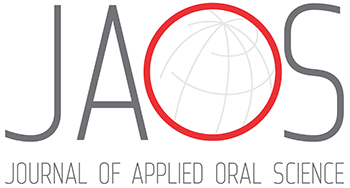EDITORIAL
Outcomes of dental science:
While I understand that this may take a precious amount of your already exiguous time, I would like to suggest you an interesting academic exercise. Get your latest IADR abstract issues, or the last year issues of your favorite journal and critically analyze each one of the published material in the field of your interest. How many of them offer a definite contribution to the advance of knowledge in the field? How many of them offer an outcome that may result in a modification of clinical procedure for a better benefit to our patients? In Dental Materials science, most of the published material is mainly serving for the commercial purposes. New materials are released and comparatively tested against those already in the market. In most instances, they are all pretty much the same. Conversely, when science shows that a material is not good, such data are apparently ignored by the company. A good example of this scenario is the current trend for the simplification of adhesive systems. While research shows that such materials are poor, and do not outperform their multi-step versions, companies not only keep producing them, but also do they release new ones in the market. Do you want to know why? Because dentists keep buying them. This shows a worse scenario. Dentists who should be using scientific evidences to support their practice are either ignoring them or not aware about them. Another example of this gap between the outcomes of dental science and the actual dental treatment is related to Periodontology. I have seen so many fine molecular biology studies identifying causes for the occurrence and progression of periodontal disease that could offer a different approach for treatment, but, to the extent of my knowledge, the current treatment for such disease is still based on scaling and surgery, as I learned 20 years ago. I trust that many other examples could be raised from other fields of dentistry, but I will leave that up to you.
Clinicians are not using science to support their clinical practice because they have not been taught to do so. While professors and researchers are discussing evidence-based dentistry, we have to ask ourselves if we are actually teaching our students to practice evidence-based dentistry. If we do so, lectures programmed to teach "Tricks and Clues for Faster Dentistry" will be empty.
Editor
Publication Dates
-
Publication in this collection
05 Sept 2005 -
Date of issue
June 2005

